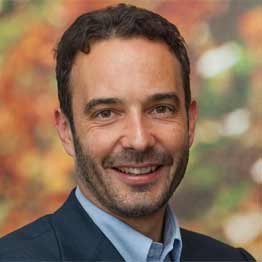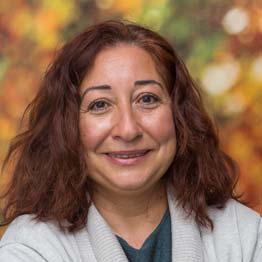Marie Skłodowska-Curie Actions
Postdoctoral Fellowship 2025
⇒ Are you a post-doctoral researcher exploring your career opportunities in Europe?
⇒ Are you interested in societally oriented research?
⇒ Are you looking for a multidisciplinary research group?
The Institute for Culture and Society of the University of Navarra wishes to attract talented, ambitious and experienced researchers at the post-doctoral level who aim to apply for Marie Skłodowska-Curie Actions - Postdoctoral Fellowship.
If you are looking for funding to develop your research career, apply for an individual fellowship with the Institute for Culture and Society (ICS) of the University of Navarra.
We want to support excellent researchers in preparing their applications to join us through this programme. The projects submitted under the Postdoctoral Fellowships must be framed in any research groups that are part of the ICS.
DISCOVER OUR RESEARCH GROUPS AND EXPLORE THE OPPORTUNITY TO JOIN A MARIE CURIE FELLOWSHIP WITH US
PhD degree
Should have a PhD degree at the time of the deadline for applications. Applicants who have successfully defended their doctoral thesis but who have not yet formally been awarded the doctoral degree will also be considered eligible to apply.
EXPERIENCE
Must have a maximum of eight years experience in research, from the date of the award of their PhD degree, years of experience outside research and career breaks will not count towards the above maximum, nor will years of experience in research in third countries, for nationals or long-term residents of EU Member States or Horizon Europe Associated Countries who wish to reintegrate to Europe.
MOBILITY RULES
Should comply with mobility rules: they must not have resided or carried out their main activity (work, studies, etc.) in the country of the beneficiary (for European Postdoctoral Fellowships), or the host organisation for the outgoing phase (for Global Postdoctoral Fellowships) for more than 12 months in the 36 months immediately before the call deadline.

Claudia Wassmann
2013-2015
Scientific Concepts of Emotion and Cultural Identities
(SECI)

Sarali Gintsburg
2017-2019
Locked between formulas: creativity in oral and 'transitional' poetic texts" (ORPHORCREA)

framework Demichelis
2017-2019
Qur'an and Qital. The violence against the Other in a historical critical deradicalizing perspective (DERADISLAM)

Eleonora Esposito
2019-2021
Online Hate against European Women Leaders: a Corpus-Assisted Multimodal Critical Analysis (WONT HATE)

Melike Akkaraka
2021-2023
Emotions in the Foreign Policy of Turkey towards the European Union (EMOFORTE)

Loris de Nardi
2021-2023
The role of civil liability reform in fire risk reduction in Iberian Peninsula (18th and early 19th centuries) (LOWRISK)
The Institute for Culture and Society is the research center at Humanities and Social Sciences of the University of Navarra. Founded in 2010, it is based on five main values: interdisciplinarity, international outreach, social impact of the research, sustainability and equity. In these years, the center has developed more than 60 interdisciplinary projects and has received funding from more than 40 public and private institutions.
In the 2024-2025 academic year, the Institute for Culture and Society has a research team made up of 83 people from 17 scientific disciplines and 19 nationalities. The work of our researchers, doctoral students and technicians is organized in eight groups of research, two Chairs and two networks of research.
The University of Navarra was founded in 1952 and it unites teaching, scientific research, medical care (at the Clínica Universidad de Navarra) and culture (at the Museo Universidad de Navarra). Among other recognitions, it has been rated as the most international of Spanish Universities according to the CYD ranking, it is among the top 100 universities in the world in 6 areas of the QS ranking, it has 7 teaching areas among the best in the world according to the Times Higher Education ranking and the University has obtained the HR Excellence in Research seal(HRS4R) which recognizes the academic center as an entity committed to quality in human resources management.
Pamplona's campus is home to 14 Schools, where more than 50 Degrees (9 of them bilingual) and more than 15 Double Degrees are offered.
Contact:
Helena Baigorri
hbaigorri@unav.es
More information about the Marie Skłodowska-Curie Actions:
